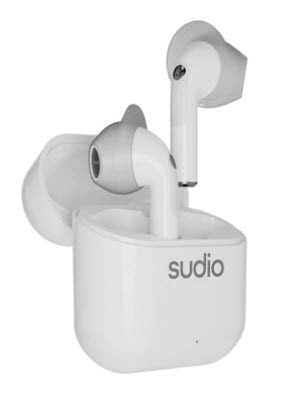Music can tune up your mental health. But how does it compare with the brain benefits of exercise?
An analysis published in 2022 by the journal JAMA Open Network indicates music may be on par with exercise in terms of improving mental health. The analysis, which reviewed the results of 26 studies, was conducted by researchers from the Institute of Music Physiology and Musicians’ Medicine at Germany’s Hannover University of Music.

The analysis looked at research about listening to music, participating in music therapy and singing.
The researchers say their analysis offers “clear and quantitative moderate-quality evidence that music interventions are associated with clinically significant changes in mental [well-being].” However, the researchers add that in-depth research is needed to explore how music can effectively be incorporated into mental health.
“For many decades, music has been utilized and studied as a support for mental health — with applications ranging from general mood elevation and stress reduction to clinical interventions designed to treat” serious mental illnesses, according to an article published in 2021 by the journal Frontiers in Psychology.
Music and Mental Health – The Benefits
The National Alliance on Mental Illness says music therapy in particular can have a positive effect on mental health conditions such as depression, schizophrenia and trauma by helping process emotions and grief, and helping control anxiety. This therapy may include playing musical instruments, listening to music or writing songs.
As explained by Johns Hopkins Medicine, research highlights some of the key benefits of music:
- Reduced anxiety.
- Lower blood pressure.
- Improved sleep.
- Better mood.
- Improved mental alertness.
“We know that music stimulates activity in the brain, improves people’s moods and encourages connections between people. It has significant potential to enhance brain health and well-being for individuals of different ages and different levels of health,” according to a report released in 2020 by the Global Council on Brain Health.
“Few activities can match the social impact of music, such as when adults sing or perform together,” the report goes on to say. “In addition, there is evidence that music promotes resilience in the brains of adults by strengthening the cognitive reserve. Such capacity can foster a person’s ability to learn throughout life, paving the way for fulfilling new experiences in their later years. Such evidence should be further explored, as society seeks innovative new ways to promote lifelong learning.”
Harvard Health Publishing delves into some of the scientific reasons for music’s boost to the brain:
- Music activates some of the broadest, most diverse networks in the brain, including the auditory cortex in the temporal lobes close to your ears.
- Emotional music synchronizes parts of the brain involved in emotion.
- Music engages regions of the memory.
Harvard Health Publishing says music can help strengthen various brain pathways and networks, including those associated with well-being, learning, cognitive function, quality of life and happiness.
“In fact, there is only one other situation in which you can activate so many brain networks all at once, and that is when you participate in social activities,” according to Harvard Health Publishing.
James Goodwin, a professor specializing in the physiology of aging at the United Kingdom’s Loughborough University and University of Exeter Medical School, explains that music helps promote mental well-being by helping balance powerful negative and positive emotions.
“In general, the positive effect of music is a result of its impact on mood and arousal, and the listener’s enjoyment,” Goodwin writes in an article published by BBC Music Magazine. “By mood, we mean long-lasting emotions. By arousal, we mean the level of physiological activation — the key to regulating consciousness, attention, alertness and information processing.”
Professors at the University of Central Florida note that the type of music that’s best for your brain depends on your personal likes and dislikes.
“Turns out, whether it’s rock ’n’ roll, jazz, hip-hop or classical, your gray matter prefers the same music you do,” the university says.






